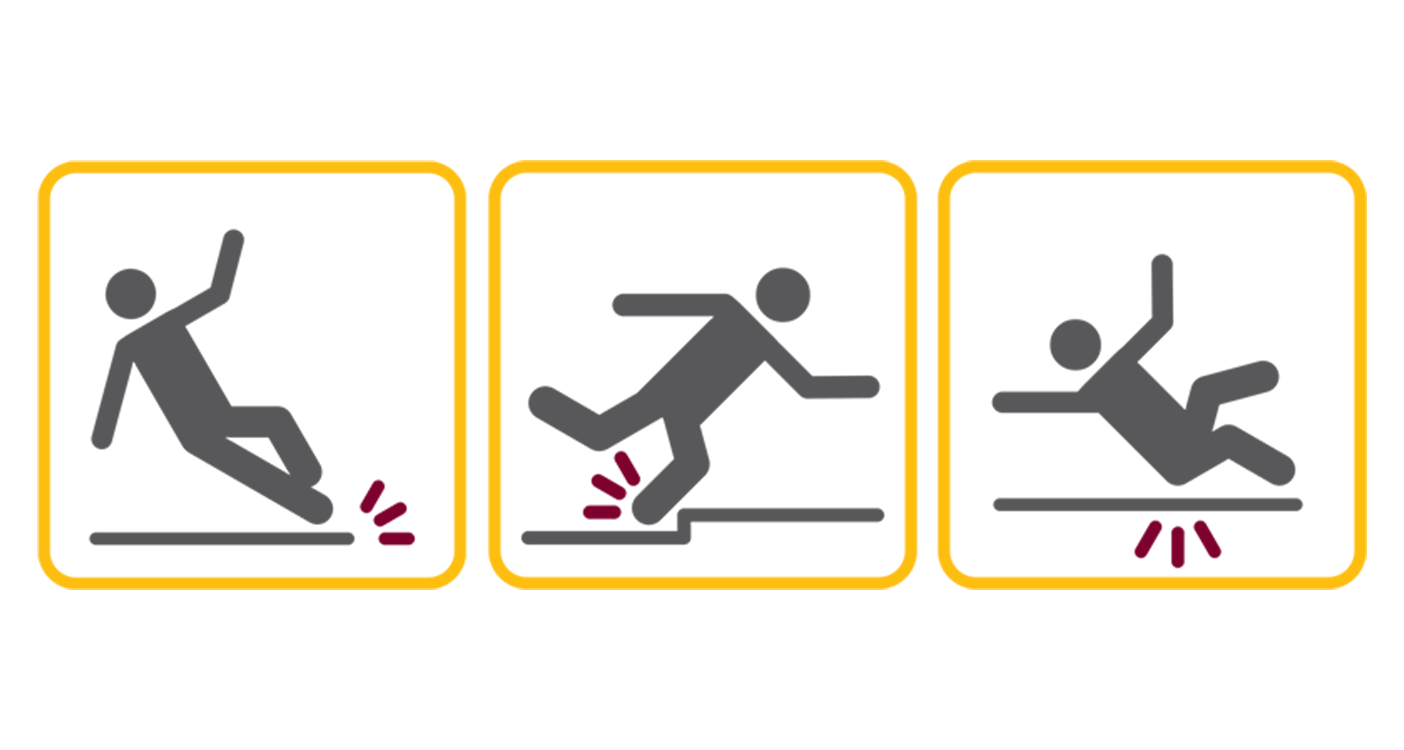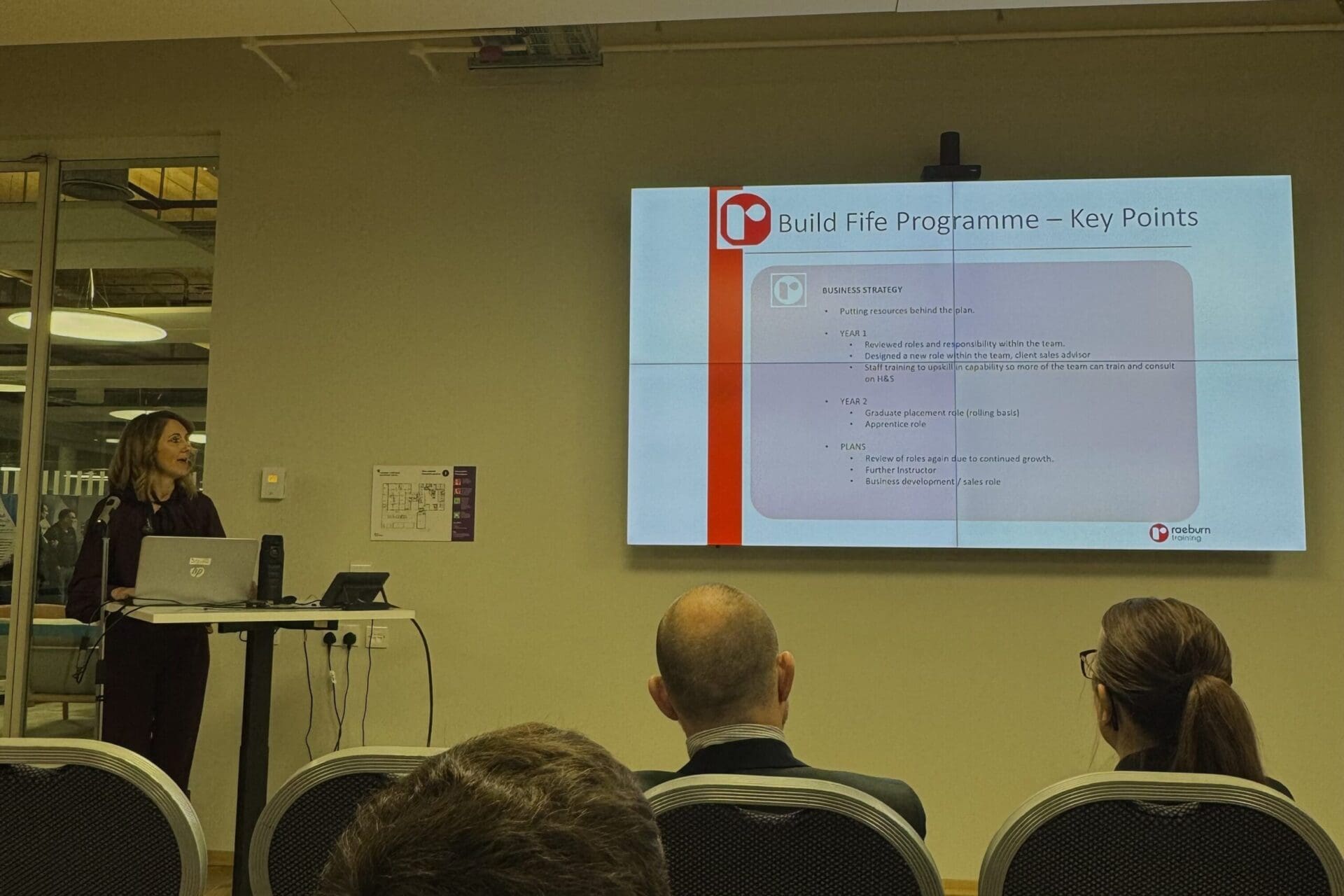From 8 January 2026, the Construction Industry Training Board (CITB) is making significant changes to how training and qualifications are funded. These reforms reflect changes in demand for funding, the growth of Employer Networks, and a desire to ensure long-term sustainability of the levy-funded system.
Understanding these updates is essential if your organisation relies on CITB support to fund training and qualifications for your workforce. This guide explains what’s changing, how it affects employers, and actions you can take to prepare.
Why the Changes Are Happening
CITB has seen a 36% increase in the number of employers accessing training support since 2021, while the levy rate (the income used to fund grants and training support) has not increased in that period. This imbalance means demand for grants now outstrips the funding available. To address this, CITB is restructuring its funding approach to focus support where it can have the greatest impact and ensure sustainability for the future.
Key Changes from 8 January 2026
1. Short Course Training Funding Is Changing
Under the new model:
- Most short courses will no longer be funded through the traditional CITB Grants Scheme.
- Support for short-duration training will instead be delivered through Employer Networks (EN), which are local advisers who help identify training and access funding.
- A small number of specialist courses (e.g., plant operations and scaffolding) will remain eligible for direct grant funding via the Grants Scheme.
- First Aid training will not be supported through Employer Networks.
This shift means employers will need to work with their local Employer Network adviser to book funded training under the new system.
2. Transitional Arrangements
If training was booked before 8 December 2025 and can be evidenced:
- The booking will continue to be funded under the current grant rates even if delivery takes place after 8 January 2026, as long as it is completed by 31 March 2026.
This transitional arrangement gives employers time to adjust but requires documentation of the booking date to secure funding at historic levels.
3. Employer Network (EN) Funding Changes
Employer Networks will be the main funding route for most training from January 2026 onward, with new terms:
- CITB will match-fund 50% of eligible training costs for most courses.
- For Health & Safety in Construction and related courses, support will be available at 30% of the average market rate.
- Employer Network funding operates on a fixed annual budget, so support is limited and distributed fairly across the year.
This means the level of support for training will generally be lower than historic grant rates, and funding will need to be planned in discussion with your EN adviser.
4. Qualification Grant Adjustments
As part of the new regime:
- Attendance grants for longer qualifications (paid during training delivery) will be removed.
- A standard achievement grant of £600 will be paid upon successful completion of non-apprentice qualifications.
- Funding for Level 7 qualifications will be discontinued if they start after 8 December 2025.
However, Level 7 apprenticeships and Scottish Advanced Craft certifications (SCQF Level 7) will continue to attract support under existing arrangements.
5. Large Employer Funding Changes (From April 2026)
From 1 April 2026, employers with 250+ employees will no longer be eligible for Employer Network funding. A new large employer funding offer will be introduced to support these businesses, but details will be published closer to the launch date.
This change aims to streamline funding routes and ensure Employer Network resources are targeted at smaller and medium-sized employers through the first quarter of the year.
What Employers Should Do Next
Review and Secure Existing Bookings
- If your training is already booked and supported under the current Grants Scheme, ensure you have evidence of booking by 8 December 2025.
- Training completed between 8 January and 31 March 2026 will be funded at existing grant rates if booked before the deadline.
Plan New Short Courses Through Employer Networks
- For training you want to undertake in 2026, contact your local Employer Network adviser.
- They will help identify eligible courses, confirm funding availability, and support the booking process under the new match-funded terms.
Review Qualification Plans
- If you are planning longer qualifications, consider how the removal of attendance grants and the new £600 achievement grant affects your funding projections.
- For Level 7 qualification plans, make sure they start before the cut-off if funding support is required.
Large Employers Should Finalise EN-Funded Training Before April
- If you are a large employer, aim to complete any training supported through Employer Networks by 31 March 2026.
- After this date, training support for large employers will be accessed via the forthcoming large employer fund.
Continued Support and Strategic Focus
While the way funding is accessed is changing, CITB remains committed to supporting construction skills development. Apprenticeship funding continues, and targeted support will remain for high-impact training aligned with industry skills gaps. CITB also runs webinars and Q&A sessions to help employers understand these changes and plan effectively.
Summary- Key Dates to Remember
- 8 January 2026 – New funding rules take effect.
- 31 March 2026 – Employer Network funding ends for large employers.
- 1 April 2026 – New large employer fund launches.
The countdown to Christmas is officially on! ![]()
As the festive season approaches, we’d like to let our clients, partners and learners know our Christmas and New Year opening hours to help with planning training, bookings and enquiries. We encourage anyone looking to arrange training before the end of the year to get in touch as soon as possible, as availability is limited in the final week.
Festive Opening Hours
| Date | Status |
|---|---|
| 19 December | 8am- 2pm |
| 22 December- 2 January | Closed |
| 5 January | 8am- 4pm |
Important Information
- During the closure period, our office will be unattended.
- Any enquiries received while we are closed will be responded to once we reopen in January.
- If you need to book training, tests, or discuss requirements before the festive break, please contact us ahead of time to avoid disappointment.
At Raeburn Training, we know that every business’s training needs are different. Some require a course for one learner, others require full teams to be supported - and training needs may change throughout the year.
That’s why we’ve designed our pricing structure to be transparent, fair, and adaptable, whether a company is booking a single course or multiple delegates.
Why Group Discounts Exist
When multiple delegates attend the same course, we can train them together maximising economies of scale - meaning reduced setup, planning and delivery time compared to multiple individual sessions. Rather than charging a flat price, we pass that saving directly back to employers.
We do this as when businesses invest in workforce development, we want to make that investment go further.
How Our Pricing Works
Our pricing is broken down into two main types:
1. Individual Delegates
Pay per person- ideal for learners needing:
- One-off certification
- Renewals
- Last-minute skills for site access
This is the most flexible option and works well for smaller bookings.
2. Group Bookings (4+ Delegates)
For bookings of four or more delegates, discounted group rates apply.
This allows teams to train together while reducing cost per head- perfect for:
- Site upskilling
- New contract onboarding
- Annual refresher training
- Workforce compliance
Training groups is not only more cost-effective- it also builds consistency across a business's workforce, ensuring everyone receives the same guidance, same standards, and same message.
Why Group Training Is Beneficial
Reduced Cost Per Delegate
The more learners trained at once, the greater the saving.
Consistency Across Your Workforce
Everyone receives the same instruction, reducing safety gaps or mixed understanding.
Better Learning Experience
Colleagues learn together, ask questions relevant to their environment, and develop confidence as a team.
Less Downtime
Instead of staggered training days, teams can achieve compliance in one block, saving time and minimising disruption.
Flexible Options to Suit Your Business
We offer multiple ways to book group training to make planning simple:
| Booking Type | Best For | Discount |
| Single Delegate | Individual certification | Standard rate |
| 4+ Delegates | Small team/ multi- role upskilling | Discount applied |
| On-Site Training | Larger groups or multi-day bookings | Quote available |
| Full Academy or Programme | Workforce pipelines & employability groups | Bespoke pricing |
With such a wide range of courses on offer, it’s not always possible to list every price in detail- but you can find our starting prices on our Courses page. Whether it’s CSCS, First Aid, Working at Height, PASMA, Confined Spaces, Face Fit or IOSH to name but a few, group bookings can make a noticeable difference to cost and scheduling.
Need a Quote? We Keep It Straightforward
Simply tell us:
- Which course(s)
- Number of delegates
- Preferred dates
- Hosted at business premises or at our training centre
- Accredited course or in-house Raeburn Training certified
We’ll provide a clear, transparent price- no hidden extras, no complications.
Final Thoughts
Our group pricing exists to make training more accessible, more affordable, and more scalable for employers of all sizes.
Whether you’re upskilling a full team or just sending one learner for a certification, our goal is always the same:
Quality training, fair pricing, and a smooth booking experience.
If you’d like to find out more or request a tailored quote:
📞 01592 724797
📩 [email protected]
The UK construction industry stands at a crossroads. Despite ambitious investment- including a recent £600 million government commitment to skills and training- the sector still faces a significant and growing skills gap. With housing, infrastructure, retrofit and green-energy projects all set to expand, the demand for skilled workers is greater than ever. If left unaddressed, this shortage threatens project delivery, cost control, safety, and ultimately, growth.
The Scale of the Issue
- According to the Construction Industry Training Board (CITB), the UK needs an additional ~250,000 workers by 2028 to meet projected demand in construction.
- Research from a construction-skills specialist indicates that 55% of firms struggled to find skilled tradespeople in 2023- up from 29% earlier in the year.
- Meanwhile, demographic data show that a large portion of the workforce is nearing retirement, meaning fewer experienced trades remain and fewer are entering the pipeline.
In short: demand is rising, the workforce is shrinking or ageing, and recruitment/training isn’t keeping pace.
Why the Gap Exists
Several inter-linked factors contribute to the shortage:
1. An Ageing Workforce
Many skilled tradespeople are approaching retirement. Without large inflows of younger workers, the replacement rate is too low.
2. Insufficient Training and Apprenticeships
Despite investment, many employers and training providers struggle to expand capacity or tailor training to the sector’s needs. Some research points to lagging e-learning, outdated curricula, or insufficient uptake.
3. Lack of Diversity and Under-Represented Groups
Construction has a long-standing challenge attracting women, ethnic minorities, and older entrants. Only around 15% of workers are women and under 6% come from ethnic minority backgrounds in some studies. Encouraging a more diverse workforce opens a wider talent pool and brings new perspectives, skills and innovation to the industry.
4. Poor Industry Image Among Younger People
The sector often struggles to attract school-leavers or career-changers who may perceive construction as a low-technology, labour-intensive, male-dominated field. Changing that perception is critical.
5. Evolving Skills Demand (Digital, Green & Retrofit)
Newer areas such as off-site manufacturing, retrofitting, green technologies (heat pumps, EV chargers), and Building Information Modelling (BIM) are creating demand for new skill sets that the existing workforce may not yet have.
Why It Matters– Beyond Talent Shortage
- Project delivery risk– Delays, cost overruns and reduced quality are more likely when skilled workers are scarce.
- Safety and compliance implications– Unskilled or poorly trained workers increase risk on-site. For a health & safety company, this is especially critical.
- Competitive disadvantage– Firms unable to recruit or train effectively may miss contracts or fail to scale.
- Green and retrofit goals– Meeting government targets for net-zero and infrastructure depends on having the right workforce.
Encouraging a More Diverse, Skilled Workforce
Here are practical strategies to help organisations plug the gap and build longer-term resilience:
1. Promote Alternative Entry Routes and Career Changes
Attracting new talent requires proactive engagement. Employers and industry bodies should widen their recruitment lens to include:
- Career- changers
- Women returning to work
- Refugees and migrants with transferable skills
- Young people not engaged in traditional education
- Individuals seeking pre-employment training
Short, focused employability academies are proving particularly effective, offering candidates a structured introduction to the sector without the barriers of long-term commitment.
2. Make Construction More Attractive and Relevant
Industry partners can reshape perceptions by showcasing:
- The role of sustainability and green energy
- Modern technology used onsite
- Real pathways for progression
- Success stories from diverse entrants
Outreach through schools, employment programmes, and community groups helps inspire new talent and demonstrates that construction is a future-focused, inclusive career.
3. Collaborate with Training Providers & Local Partners
Effective workplace development relies on strong partnerships. Employers should work closely with colleges, private providers, employability teams, and community organisations to create training that reflects real local labour demand.
Raeburn Training regularly collaborates with these partners to design academies aligned with employer needs- from pre-CSCS preparation to role-specific for particular trades.
4. Tailor Academies for Under-Represented Groups
Not everyone enters the industry with the same level of confidence, opportunity, or support. That’s why it’s important that training programmes are designed to be welcoming and accessible to those who may be under-represented or harder to reach.
Raeburn Training tailors academies to meet the needs of these groups, ensuring training is inclusive, supportive, and designed to help individuals build confidence, gain essential skills, and take their first steps into construction.
Creating programmes that feel accessible to everyone helps widen talent pipelines and supports a more diverse, resilient workforce.
5. Help Employers Identify Funding Opportunities
Navigating employability and training funding can be complex.
From local authority budgets to employability pipelines, DWP funding, CSR contributions, Flexible Workforce Development, and community grants- opportunities vary across regions.
Raeburn Training works with employers to help identify the most suitable funding streams to support academy delivery and workforce development.
This ensures programmes are cost-effective, sustainable, and aligned with both business needs and local labour market demand.
6. Invest in Upskilling and Retention
Developing existing staff is essential. Employers should support:
- Digital and technology training
- Green skills and retrofit qualifications
- Supervisory and leadership development
- Continuous health & safety training
- Clear progression routes
A well-trained workforce is safer, more productive, and more likely to stay.
7. Use CSR to Build Future Talent Pipelines
Community-focused training academies, mentoring, school outreach, and work placement opportunities can all be delivered through CSR commitments.
Industry partners can meet social value KPIs while simultaneously building local talent.
Raeburn Training supports Tier 1 contractors across Scotland by delivering CSR-aligned academies that create measurable social impact and employment pathways.
Moving Forward: A Call to Action
- Map regional skill shortages
- Partner early with training providers
- Promote diversity and widen recruitment
- Embed upskilling in workforce planning
- Use CSR to strengthen community talent pipelines
Our Commitment
At Raeburn Training, we specialise in delivering high-quality, accessible employability programmes, construction academies and inclusive training pathways that support workforce development across Scotland. From targeted academies to specialist initiatives for under-represented groups, we are committed to helping employers bridge skills gaps and build strong, sustainable talent pipelines for the future.
As the winter months approach, construction sites face a fresh set of challenges. Shorter days, freezing temperatures, and unpredictable weather all create extra risks- both for workers and for productivity.
While it might feel like business as usual, cold weather can quickly turn routine tasks into hazards. Slippery walkways, reduced visibility, cold stress, and equipment issues all become real concerns. With some forward planning and the right precautions, though, it’s possible to keep your site safe, compliant, and running smoothly right through winter.
This blog outlines the main winter construction risks and gives practical advice on how to reduce them- based on HSE guidance and best practices from across the industry.
Why Construction Risks Increase in Winter
Working outdoors in winter brings extra physical and environmental challenges. Cold air reduces dexterity, slows reaction times, and can make manual handling more difficult. Frost, ice, and mud create unstable ground, and shorter daylight hours mean visibility often drops just when heavy machinery and vehicles are still in use.
The HSE classifies these as foreseeable hazards- meaning employers must plan and take action to protect workers. The goal isn’t just to avoid accidents, but to keep teams healthy, comfortable, and able to do their jobs safely.
1. Slips, Trips and Falls
One of the biggest winter hazards on site is the increase in slips, trips, and falls. Ice, frost, and mud build up quickly on access routes, scaffolding, and steps. These may not always be visible, especially early in the morning or late in the day.
How to reduce the risk:
- Grit and clear walkways regularly- particularly before shifts begin.
- Use slip-resistant footwear with good tread.
- Keep steps, ladders, and platforms free from ice, mud, and debris.
- Provide extra lighting in darker areas and high-traffic zones.
- Encourage workers to report hazards immediately.
Even small actions, like adding temporary barriers or warning signs, can make a big difference.

2. Cold Stress and Weather-Related Health Risks
Prolonged exposure to cold weather can affect both comfort and concentration. Conditions such as cold stress, hypothermia, and frostbite can occur if workers are not properly protected.
Preventative measures:
- Provide warm, sheltered areas for breaks and meals.
- Encourage frequent rest periods in very cold weather.
- Supply or recommend suitable PPE- thermal layers, waterproof clothing, gloves, and hats.
- Rotate outdoor tasks where possible to limit exposure.
- Ensure access to warm drinks and a place to dry wet clothing.
Remember: being cold or wet for long periods doesn’t just affect comfort- it impacts alertness, decision-making, and reaction time.

3. Reduced Visibility
With shorter daylight hours and darker mornings, poor visibility becomes a serious risk on construction sites. This increases the likelihood of collisions, especially where vehicles and pedestrians share space.
What to do:
- Review lighting across the site- add temporary floodlights in darker areas.
- Make sure workers wear high-visibility PPE, especially near vehicles or plant.
- Schedule high-risk tasks (such as lifting or vehicle movements) during daylight hours where possible.
- Keep lights clean and free from condensation or dirt to maintain brightness.
Good lighting is one of the simplest and most effective winter safety measures.

4. Machinery and Equipment Issues
Cold, damp weather can cause mechanical problems. Engines take longer to start, hydraulic systems stiffen, and batteries drain faster. Frozen ground can also affect the stability of machinery.
Best practice:
- Conduct daily checks on all vehicles and equipment.
- Keep machinery sheltered or covered overnight.
- Check brakes, tyres, and hydraulic systems before use.
- Allow extra time for equipment to warm up before operation.
- Ensure operators are trained to recognise weather-related faults.
If the weather turns severe, it’s always better to delay work than risk damage or injury.

5. Fatigue and Wellbeing
Winter isn’t just physically demanding- it can also impact mental wellbeing. Working long hours in cold, dark conditions can lead to tiredness, reduced motivation, and stress.
Support your team by:
- Encouraging regular breaks and hydration.
- Holding short safety briefings or “toolbox talks” to check in with workers.
- Keeping communication open- make sure everyone feels confident to raise issues.
- Reminding staff of any wellbeing or mental health support available.
A well-rested, supported team is far more likely to stay alert, safe, and productive.

6. Legal Responsibilities and Risk Assessment
Employers have a legal duty under the Health and Safety at Work Act and Workplace (Health, Safety and Welfare) Regulations to protect employees from risks- including those caused by cold weather.
While there’s no set minimum outdoor temperature, HSE guidance states that conditions must be “reasonable.” That means conducting a seasonal risk assessment to identify:
- Tasks most affected by cold or wet conditions.
- Areas prone to ice or poor drainage.
- Lighting and visibility issues.
- Suitability of PPE and welfare facilities.
These assessments should be updated as conditions change.

Practical Tips for Safer Winter Working
Here are some simple yet effective ways to improve winter safety across your site:
- Plan ahead– Review forecasts and plan work around severe weather.
- Update safety briefings– Include winter-specific hazards in toolbox talks.
- Check welfare facilities– Make sure workers have warm, dry spaces.
- Inspect and maintain equipment– Cold affects performance, so regular checks are vital.
- Encourage reporting– Create a culture where hazards are spotted and dealt with early.
- Adjust work schedule– Prioritise daylight hours and limit exposure during the coldest periods.
Promoting a Positive Safety Culture
Winter safety isn’t just about procedures- it’s about mindset. Encouraging workers to look out for each other helps prevent incidents before they happen.
Remind your team that reporting hazards, taking breaks, and wearing the right PPE aren’t signs of weakness- they’re part of working smart. A strong safety culture builds confidence and trust, helping everyone get home safely at the end of the day.
Final Thoughts
Winter weather will always bring extra challenges to construction sites, but with planning, awareness, and teamwork, these can be managed effectively.
By carrying out proper risk assessments, maintaining equipment, and supporting workers’ wellbeing, you can reduce incidents and keep projects running efficiently- no matter how cold it gets.
If you’d like tailored guidance on winter risk assessments, PPE selection, or site safety training, our team can help. We provide expert support to ensure your site stays compliant, safe, and ready for whatever winter brings.
Stay safe, stay warm, and keep safety at the heart of everything you do.
In the fast-paced and often high-pressure world of construction, the wellbeing of workers can too easily be overlooked. Long hours, physically demanding labour, tight deadlines, and financial insecurity can all take a heavy toll and, when combined, these pressures can push people into crisis.
That's why we are taking the opportunity to shine a spotlight on The Lighthouse Construction Industry Charity, the only organisation 100% dedicated to supporting the construction community across the UK and Ireland.
Their mission is simple yet powerful: to ensure that no construction worker or their family ever feels alone in a crisis. Through free, confidential, and round-the-clock emotional, physical, and financial wellbeing support, they are transforming lives across the industry one call, one site visit, one conversation at a time.
Origins and Mission
The Lighthouse Charity traces its roots back to 1956, when a group of construction professionals attending a Ministry of Public Buildings & Works exhibition in Whitley Bay pledged to create a beacon for those in need within the industry.
Today, that vision has evolved into a modern, multi-faceted charity that provides free and confidential support across three core pillars: emotional, physical, and financial wellbeing.
What Lighthouse Does: Services & Programmes
Lighthouse’s support is built to be holistic and accessible, meeting people wherever they are- on the phone, online, or on site. Here’s a breakdown of their principal services and programmes:
1. 24/7 Helpline
- A free confidential helpline that operates 24/7 across the UK (0345 605 1956) and ROI (1800 939 122).
- Offers support to anyone working in construction or the trades- whether its help with stress, debt, illness, relationship breakdowns, or suicidal thoughts. Trained advisers are always ready to listen, reassure, and help.
2. Digital Support
- Live chat support, accessible via the website, allowing people to initiate conversations in real time. The chat service supports over 120 languages.
- Text HARDHAT: for those who prefer messaging, they can send “HARDHAT” to 85258 (UK) or 50808 (ROI) to receive one-to-one support.
- A Self-Support App, which includes self-help tools, assessments, coping strategies, and referral pathways to accredited organisations.

3. Critical Incident Support Team
- When tragedy strikes on site, the charity’s critical incident support team is there to respond- offering trauma-informed support to anyone affected by serious accidents or fatalities.
- They offer psychological first aid, group support, individual counselling, and follow-up in line with NHS or clinical guidelines.
- In 2024 alone, the team supported more than 1,000 people following critical incidents, helping them process trauma and begin recovery.
4. Lighthouse Beacons and On-Site Presence
- Lighthouse Beacons are local volunteer hubs across the UK & Ireland. These are safe, face-to-face spaces for people to connect, share, and support one another.
- #MakeItVisible On-Site Campaign: A team visits construction sites, hire yards, merchants, and other industry locations to raise awareness, break the stigma around mental health, and ensure workers know what support is available.
- By going on sites, Lighthouse makes itself visible and accessible- not waiting for people to come to them.

5. Financial & Welfare Support
Because wellbeing is more than mental health, Lighthouse also supports:
- Emergency financial grants for workers and families facing crisis (illness, injury, unemployment, bereavement)
- Advice and support on tax, debt, benefit entitlements, budgeting, CIS, legal concerns, employment rights, etc
- Support in accessing third-party and statutory funding, ensuring caseworkers help people navigate complex systems to relieve pressure.
Measurable Impact
The charity’s 2024 Impact Report tells a story of growth, compassion, and measurable change. Over the past year, more workers have reached out for help- with a 29% increase in support requests, resulting in 5,696 families receiving vital assistance.
In total, Lighthouse delivered over £5 million in charitable support, handled more than 11,000 helpline calls, and delivered 5,761 counselling and mentoring sessions. They delivered 5,684 family meals and engaged 28,070 site operatives.
Behind each number is a story of hope- a tradesman overcoming addiction, a joiner’s family rebuilding life after a stroke, a survivor of domestic abuse finding safety and confidence, or a worker finally breaking free from isolation. The Lighthouse Charity doesn't just respond to crises; it restores dignity, stability, and belief in a better tomorrow.
#MakeItVisible: Breaking the Silence on Site
Mental health stigma remains one of construction’s biggest challenges- but Lighthouse is changing that, one site at a time.
Through the #MakeItVisible On Site campaign, dedicated teams travel across the UK & Ireland, visiting construction sites, hire yards, and offices to start open conversations about wellbeing. In 2024, they visited 574 sites and engaged directly with over 28,000 workers.
These visits save lives. Last year, 88 workers disclosed suicidal thoughts to the team- and each one was immediately connected to professional support and follow-up care.
Team members often share their own lived experiences, making these sessions relatable and authentic. As one industry partner put it:
“The #MakeItVisible tour is incredible. Its honest, down to earth, and full of real- life experiences that people can truly relate to.”

Wellbeing Academy
Beyond crisis intervention, Lighthouse is helping to reshape construction’s culture through education. The Wellbeing Academy offers free and subsided training to help individuals and organisations build resilience and awareness.
In 2024 alone, more than 4,700 learners completed courses. Topics range from Mental Health First Aid, Suicide Awareness, and Managing Mental Health in the Workplace, to Menopause Awareness, Resilience Building, and Financial Wellbeing.
These programmes empower workers to look out for one another, foster empathy, and create safer, more supportive environments across and levels of the industry.

Why Lighthouse Matters
Construction is an inherently risky sector. Its demanding, unpredictable, and often isolating. Many workers face short-term contracts, long commutes, or financial instability. Add to this the physical toll of labour and the cultural stigma around seeking help- and the result can be devastating.
Lighthouse breaks through these barriers. It offers a hand when pride, fear, or lack of access might otherwise stop someone reaching out. It reminds us that asking for help is not a weakness, but a strength.
As Sarah Bolton, CEO of the Lighthouse Charity, explains:
“Emotional, physical, and financial wellbeing are intrinsically linked- and we’re here to help our community build healthy, sustainable futures.”
How the Industry Can Support
Lighthouse receives no government funding- every helpline call, counselling session, or rescue is made possible by donations, partnerships, and fundraising within the industry.
Here’s how companies and individuals can help:
- Become a Lighthouse Company Supporter- pledge annual support and gain access to free wellbeing training and campaign materials.
- Promote awareness- share helpline details at inductions, toolbox talks, and staff areas.
- Host #MakeItVisible visits- invite the team to your sites and projects.
- Fundraise- organise events, challenges, or Lighthouse Days.
- Champion wellbeing- talk openly, lead by example, and embed support in your culture.

Help is Here
If you or someone you know works in construction and is struggling, remember- help is here.
- UK Helpline: 0345 605 1956
- ROI Helpline: 1800 939 122
- Text HARDHAT: 85258 (UK) / 50808 (ROI)
- Live Chat: lighthouseclub.org | makeitvisible.info
Together, we can build a safer, stronger, and more compassionate construction industry- one where no worker ever has to face a crisis alone.

Time for a recap of our busy week during Fife Business Week! The Raeburn Training team took part in a range of events across the region- gaining insights, building connections, and sharing our own experiences with others in the local business community. Here's what we got up to:
Monday
Forth Green Freeport Event
Sarah Raeburn attended the Forth Ports Forth Green Freeport event- a major long-term project right on our doorstep. It was insightful to hear about the investment, upcoming skills needs, and future job opportunities this project will bring to the region.

Tuesday
Trade Show Selling Workshop
Sarah Huxter took part in a practical Trade Show Selling workshop. It was a great refresher on best practices for exhibiting at trade fairs and will stand us in good stead for the events we have planned in 2026.
Wednesday
Know Your Network
Derek attended the Know Your Network event in Dunfermline. It proved to be an excellent opportunity to connect with employability partners and engage with clients we support across Fife.
Thursday
Meet the Buyer
Sarah Huxter and Erin set up at the Fife Meet the Buyer event- always a valuable opportunity to catch up with Fife-based businesses and build new connections.

Guest Speaker
Sarah Raeburn was also in attendance as a guest speaker for the Fife Build Project talk. It was great to reflect on the initiative, share the benefits it has provided, and discuss the role it has played in our business growth.
We hope the session encouraged more companies to get involved- and it was brilliant collaborating with Calforth and Gus Laing. Best of luck to the 2026 cohort.

Friday
Neurodiversity in the Workplace
To round off the week, Sarah Huxter attended a session on Neurodiversity in the Workplace. The insights were extremely valuable, both from an employer perspective and as a training provider, and will help strengthen the support and additional provision we offer.
As we mark Stress Awareness Week, it's worth remembering that work-related stress isn't just a "wellbeing matter"- it's a legal health and safety risk. According to the Health and Safety Executive, employers must assess and act on the causes of workplace stress.
With nearly 776,000 workers reporting stress, depression, or anxiety linked to work in 2023/ 24, and 16.4 million working days lost as a result, it's clear that even small preventative steps can make a big difference.
Here are five practical actions every team can take this week:
- Reach out- start the conversation about stress
- Recognise- identify causes and signs of stress
- Respond- agree on actions and make changes
- Reflect- review what's working and what's not
- Make it Routine- embed prevention into everyday practices
If you're leading or managing a team, we'd encourage you to review your current risk stress assessment, use the Working Minds "Talking Toolkbit," and take a moment in your next meeting to discuss how you're supporting your people.
Together we can make our workplaces healthier, more resilient, and compliant with our duty of care.
We are delighted to deliver our first Women in Construction Academy in partnership with East Lothian Works and Balfour Beatty.
This is our first academy designed specifically to support women entering the industry- an important step towards improving representation and creating accessible pathways into construction careers.
Over the course of the week, delegates will complete a full programme of introductory construction training, gaining essential health & safety knowledge, practical skills, and the confidence to take their next steps. The programme included key qualifications such as Manual Handling, Working at Height, Fire Awareness and Abrasive Wheels, alongside support for their CSCS preperation.
A huge well done to everyone who is taking part- we're incredibly proud to play a role in opening doors for more women joining the industry.
Thank you to East Lothian Council and Balfour Beatty for their collaboration and commitment throughout the programme. We look forward to delivering more women-focused academies in the future.
Welcome to the final part of our Cyber Security Awareness Month series!
So far, we've explored why cybersecurity matters and the type of threats that can impact your business. In this final blog, we'll focus on the most important part- how to stay safe online and protect your people, data, and reputation.
Just as workplace health and safety depends on good habits and awareness, digital safety relies on everyday actions. The goal isnt to eliminate all risk (thats impossible), but to build resilience, so your organisation can prevent, detect, and recover from incidents effectively.
The 5Cs of Cybersecurity
A practical way to strengthen your organisation's cyber resilience is to follow the 5Cs of Cybersecurity- a simple framework that covers the foundations of good cyber hygiene:
- Control
- Compliance
- Confidentiality
- Continuity
- Capacity
Lets explore what each one means in real terms.
Control
Just like in physical safety, control is about knowing who can access what. Not everyone in your organisation needs to every system or file.
Implementing role-based access ensures that staff only see the data relevant to their job. Combine this with:
- Strong password policies (encouraging unique, complex passwords).
- Multi- factor authentication (MFA) to add an extra layer of protection.
- Regular access reviews to remove inactive or outdated accounts.
- Control also means setting up technical barriers- like firewalls and endpoint protection- to reduce unauthorised access.
Remember: prevention starts with limiting opportunity.
Compliance
Cybersecurity isnt just good practice; its a legal requirement.
Under the UK GDPR and Data Protection Act 2018, organisations must take "appropriate technical and organisation measures" to protect personal data.
Compliance also builds trust with customers and partners. It shows that your organisation takes data protection seriously and follows recognised best practices.
To stay compliant:
- Review your data protection policies regularly.
- Carry out risk assessments and document your controls.
- Train staff on handling personal information responsibly.
- Follow guidance from the National Cyber Security Centre (NCSC) and Information Commissioner’s Office (ICO).
Compliance doesn’t just protect you from fines- it protects your reputation.
Confidentiality
Confidentiality ensures that data is only accessed by authorised people.
Breaches of confidentiality can happen in many ways- from phishing attacks to misplaced laptops.
To protect your data:
- Encrypt sensitive files and communications.
- Use secure platforms for file sharing and storage.
- Encourage a “need-to-know” approach to information access.
- Train staff to recognise phishing and fake login pages.
Simple habits make a big difference: locking screens when away from desks, shredding printed documents, and verifying requests before sharing information.
When confidentiality is compromised, trust is broken. Safeguarding information is key to maintaining confidence with your clients, learners, and staff.
Continuity
Even with strong defences, no system is 100% secure. That’s why continuity planning is essential.
It’s about ensuring your business can keep operating- or recover quickly- if something goes wrong.
Ask yourself:
- Do you have regular backups stored securely (ideally off-site or in the cloud)?
- Have you tested your incident response plan?
- Would staff know who to contact and what to do if systems were compromised?
- Are you insured or financially prepared for disruption?
Having backups and a clear plan means you can bounce back faster and limit the impact on customers. Continuity is the bridge between prevention and recovery.
Capacity
The final “C” is all about people.
Even with the best technology, your organisation is only as strong as the awareness of your team. Human error remains the biggest cause of cyber incidents.
Building capacity means:
- Providing regular cyber awareness training.
- Encouraging staff to report suspicious activity early.
- Creating a no-blame culture- mistakes happen, but quick reporting prevents bigger problems.
- Staying up to date with the latest scams and guidance from trusted sources like the NCSC.
Empowered staff are the best protection against cyber threats.
Good Cyber Hygiene: Simple Steps to Stay Safe Online
Cybersecurity doesn’t have to be complicated. Many of the best defences come down to good digital habits:
- Use strong, unique passwords- and never reuse them. Consider a password manager.
- Enable multi-factor authentication (MFA) on all important accounts.
- Keep systems and software updated- patches fix known security weaknesses.
- Back up data regularly- to a secure, separate location.
- Be cautious with links and attachments- stop, think, verify before clicking.
- Secure your Wi-Fi- use strong passwords and avoid public networks for sensitive tasks.
- Limit personal device use on business networks.
- Monitor access and review who has permissions to sensitive systems.
These may sound simple, but collectively they reduce your risk significantly.
Building a Culture of Cyber Awareness
Creating a cyber-secure workplace is not just about policies- it’s about culture. Everyone should feel responsible for keeping information safe.
Here’s how to embed that culture:
- Start conversations about digital safety in team meetings.
- Celebrate good practice- acknowledge staff who spot phishing attempts.
- Include cybersecurity in induction and refresher training.
- Encourage openness- if something goes wrong, reporting it quickly helps the whole team.
Just like health and safety, cybersecurity should be part of daily behaviour, not an afterthought.
The Bigger Picture
Cybersecurity isn’t just about avoiding fines or preventing downtime- it’s about trust, resilience, and professionalism.
In the same way that workplace safety protects people from harm, cybersecurity protects the data, systems, and relationships that keep your business running.
By following the 5Cs of Cybersecurity, practising good hygiene, and fostering a culture of awareness, you can protect your organisation from today’s most common digital threats- and build resilience for whatever comes next.




